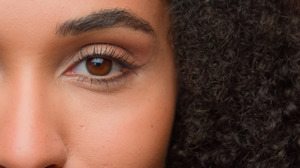
If you have blurred vision, it may be due to an eye condition known as astigmatism. Fortunately, it’s possible to treat this issue so that you can see clearly throughout the day. That being said, however, it’s important to make sure that you’re not doing anything that could potentially make your symptoms worse. Below is a closer look at what causes astigmatism, what you should avoid if you have it, and what treatments are available.
What Causes Astigmatism?
Astigmatism can involve one of two crucial components of your eye: the cornea that serves as the outermost layer and the lens that’s located behind the iris. If either the cornea or the lens is irregularly shaped, it can affect the way that light enters the eye. The result is that the images you see appear blurrier than they should.
What Should You Avoid If You Have Astigmatism?
The main thing you want to avoid with astigmatism is eye strain. Prolonged or intense use of the eyes can easily make blurred vision and other astigmatism-related symptoms worse. You can reduce eye strain by:
- Making sure you always read or work in a well-lit area.
- Reading books with large print.
- Putting your television or computer in a spot where light won’t reflect off it in order to avoid glare.
- Taking frequent breaks from staring at a screen (ideally by looking at something 20 feet away for 20 seconds every 20 minutes).
Additionally, you should avoid doing anything that risks damaging an already irregularly shaped cornea further. In particular, if you’re in the habit of rubbing your eyes, you should make a point of breaking it.
How Can Astigmatism Be Treated?
Oftentimes, your optometrist will suggest contact lenses as a treatment for astigmatism. The lenses will help refract the light in a way so that it focuses on the retina as it should. There’s more than one type of contact lens; the kind that’s recommended in your case will depend on the severity of your eye condition. Remember to follow any instructions your optometrist gives you for wearing contacts, such as taking them off whenever you go swimming.
Eyeglasses are also a common solution for astigmatism. They work similarly to contacts in that they’re designed to correct the way that light enters the eye. Whether you get eyeglasses or contacts depends on your own preferences as well as your unique eyecare needs.
Forcing yourself to live with astigmatism is a mistake; it’s always best to have it treated as soon as you can. When you go to see your optometrist, they can give you further advice for taking care of your eyes while you have astigmatism so that you don’t exacerbate your symptoms.
About the Author
Dr. Nayiri Ajoian attended the New England College of Optometry in Boston. She routinely attends symposiums, workshops, and seminars in order to expand her clinical knowledge. At EyeSmile Dentistry and Optometry of Belmont, she helps patients find solutions for astigmatism and other eye conditions. To schedule a consultation with Dr. Ajoian, visit her website or call (617) 484-7869.
